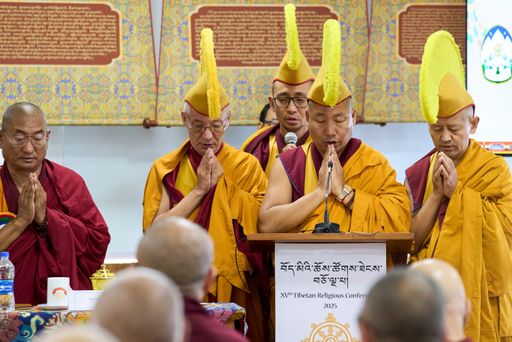China and India should steadily advance practical cooperation, China’s Vice President Han Zheng told India’s External Affairs Minister Subrahmanyam Jaishankar on Monday, the official Chinese news agency said.
During the meeting in Beijing, Han said both countries should also respect each other’s concerns and promote the stable development of bilateral ties, Xinhua reported.
India’s foreign minister said ties with Beijing have been stabilising in recent months, as he visits China for the first time since the deadly border clashes between the two Asian neighbours in 2020.
“Continued normalisation of our ties can produce mutually beneficial outcomes,” Jaishankar said, adding that relations have been “improving” since Indian Prime Minister Narendra Modi and Chinese President Xi Jinping met in Kazan last October.
Xinhua reported Han emphasised that a “dragon-elephant tango” — or a harmonious relationship — aligns with the interests of both countries, highlighting their roles as major developing nations and key members of the Global South. The dragon and elephant are common stand-ins for China and India, respectively.
SCO leaders’ meeting
Beijing and New Delhi’s rapprochement is the latest move by the world’s two most populous nations following deadly clashes in the Galwan Valley along their 3,440km border dispute in 2020.
Jaishankar’s visit is the latest in a series of high-profile trips by Indian officials to China since tensions between the two sides began to ease late last year.
In June, India’s Defence Minister Rajnath Singh visited China to attend the Shanghai Cooperation Organisation’s defence ministers’ meeting in Qingdao.
The officials are likely laying the groundwork for a potential visit by Modi to the SCO leaders’ summit this fall.
India’s foreign minister is expected to meet his counterpart Wang Yi on Monday, Bloomberg News reported earlier, before travelling to Tianjin to attend the SCO’s council of foreign ministers.
In a deadly standoff between New Delhi and Islamabad in April, Pakistan used Chinese jets and missiles to shoot down Indian fighter aircraft.
The clash, during which India killed dozens of Pakistani civilians in its attacks, lasted four days and ended after US President Donald Trump mediated a ceasefire between the two archrivals.




















